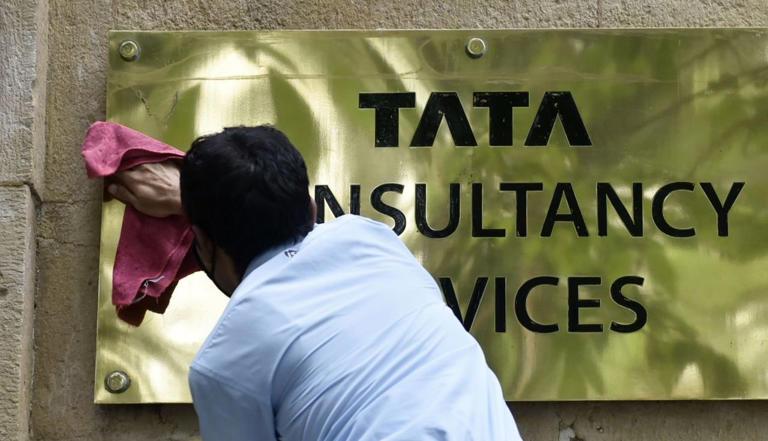The U.S. visa program for skilled foreign workers has been a subject of contention for years, with concerns over American workers potentially losing their jobs to lower-paid foreigners. Now, a group of experienced American professionals has accused Indian outsourcing giant Tata Consultancy Services (TCS) of abruptly firing them and replacing them with workers from India on H-1B visas.
According to complaints filed with the Equal Employment Opportunity Commission (EEOC), at least 22 American workers allege that TCS discriminated against them based on their race and age. The former employees, who are Caucasians, Asian-Americans, and Hispanic Americans ranging from their 40s to their 60s, claim that TCS targeted them unlawfully and favored Indian workers on H-1B visas. Many of the affected professionals hold advanced degrees, such as master’s in business administration.
While layoffs are not uncommon in the corporate world, the complainants assert that TCS’s actions violated anti-discrimination laws by specifically targeting individuals based on protected characteristics. They argue that the company’s preference for Indian workers on H-1B visas perpetuates the displacement of American workers by foreign employees who may be willing to work for lower wages.
In response, a TCS spokeswoman refuted the allegations of unlawful discrimination, asserting that the company maintains a strong commitment to being an equal opportunity employer and conducting its operations with integrity.
The complaints against TCS bring to light broader questions surrounding the utilization of H-1B visas by Indian IT firms. While the visas are intended for skilled foreign workers, concerns persist that they have been exploited to replace American workers with foreign counterparts who may receive lower compensation.
TCS, headquartered in Mumbai and part of the Tata Group conglomerate, is India’s largest IT services firm by revenue, with a vast global workforce primarily based in India. Despite generating significant revenue in North America, the company typically maintains a smaller workforce in the U.S., primarily comprising staff who interact directly with clients in the region.
The involvement of the EEOC underscores the seriousness of the allegations, as the agency enforces federal laws prohibiting workplace discrimination and can pursue legal action against offending entities. While the EEOC declined to comment on the specific case against TCS, its involvement signals potential ramifications for the company, including financial penalties, if the allegations are substantiated.
The utilization of H-1B visas by big U.S. tech firms like Google, Microsoft, and Meta, for high-wage employees with different business models, has faced comparatively less criticism than outsourcing companies like TCS. However, the annual quota of roughly 85,000 new H-1B visas is consistently oversubscribed, reflecting the high demand for skilled foreign workers in the U.S. job market.
The former TCS employees allege that despite their years of positive performance reviews and contributions to projects in areas such as finance, operations, and supply-chain management, they were abruptly removed from their roles last year. Many claim that TCS management hindered their efforts to secure new assignments within the company, even when requested by clients to continue on projects, ultimately leading to their termination. Some assert that their responsibilities were subsequently assumed by younger, less-experienced Indian nationals on H-1B visas.
In their complaints, the former employees reference statements made by TCS’s global human resources head, Milind Lakkad, in an interview with Indian media last year. Lakkad reportedly indicated TCS’s intent to reduce its American workforce and create more opportunities for Indian nationals in the U.S.
Peter Bendor-Samuel, CEO of Everest Group, a consulting firm specializing in outsourcing, commented on the complaints, noting that TCS faces a significant challenge and suggesting that the law favors the employees in this context.
The discourse around H-1B visas has been contentious, particularly in the political arena. Former President Donald Trump campaigned on promises to tighten American borders and criticized the H-1B system as a “cheap labor program.” During his presidency, he proposed reforms to make it more difficult to qualify for H-1B visas, although some of these policies were later struck down by a federal judge.
In October, the Biden administration introduced proposed changes to the H-1B visa lottery process following findings of collusion among companies seeking to increase their chances of obtaining visas. These developments underscore ongoing debates and regulatory scrutiny surrounding the H-1B program and its impact on the U.S. workforce and economy.
